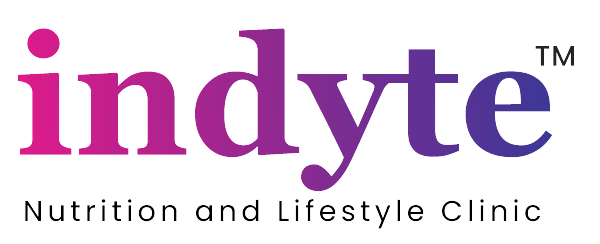- August 9, 2024
- PRIYANKA MAHESHWARI
- Comment: 0
- Weight Loss
Fruits are nature’s candy, bursting with vitamins, minerals, and fiber. It’s no surprise that many people turn to fruit diets for weight loss.
But are they truly effective, and what are the potential downsides?
Many people turn to diet changes as a primary strategy in their quest for effective weight loss solutions. Among the various dietary approaches, the fruit diet stands out for its simplicity and the natural benefits it offers.
This guide will explore the benefits of a fruit diet for weight loss, its impact on weight loss, and how to incorporate it into your lifestyle in a balanced and sustainable way.
What’s in a Fruit Diet?
As the name suggests, a fruit diet primarily consists of consuming a variety of fruits. This diet can range from eating only fruits to combining fruits with other food groups like vegetables, nuts, and seeds.
Fruits are rich in vitamins, minerals, fiber, and antioxidants, making them essential to a healthy diet.
Can Fruit Diet Help You Lose Weight?
A fruit diet can be an effective weight loss strategy due to its low-calorie content, high fiber, and nutrient density. They also help maintain hydration levels and provide healthier natural sugars than processed sugars. However, like any diet, the effectiveness of a fruit diet for weight loss depends on how it is implemented and balanced.
Fruit Diet & Weight Loss
1. Low in Calories
Most fruits are naturally low in calories, making them ideal food choices for reducing one’s caloric intake. For example, an apple of medium size contains about 95 calories, and a cup of strawberries has only about 50 calories.
Replacing high-calorie snacks with fruits can create a calorie deficit that leads to weight loss.
2. High in Fiber
Fruits are a great source of dietary fiber, which helps with digestion and keeps you feeling full for a longer time. Fiber also slows down the absorption of sugar into the bloodstream, preventing spikes in blood sugar levels that can lead to weight gain.
High-fiber fruits like apples, pears, and berries are particularly effective in promoting satiety and reducing overall calorie consumption.
3. Nutrient Density
Fruits are packed with essential nutrients, including vitamins C and A, potassium, and folate, vital for overall health and well-being.
Fruits’ high nutrient density ensures you get the necessary vitamins and minerals while reducing your calorie intake, supporting your body’s functions, and promoting weight loss.
4. Hydration
Many fruits have high water content, which helps keep you hydrated and can contribute to a feeling of fullness. Watermelon, cucumbers, and oranges are excellent examples of hydrating fruits.
Staying hydrated is crucial for metabolism and can aid in weight loss.
5. Sugar Content
While fruits contain natural sugars, they also provide fiber, vitamins, and minerals that mitigate the negative effects of sugar. Consuming fruits in moderation is essential to avoid excessive sugar intake, especially for individuals with conditions like diabetes. Although there are lifestyle changes to control diabetes naturally.
Choosing low-sugar fruits like berries and kiwis can help manage sugar levels while still enjoying the benefits of a fruit diet.
Creating a Balanced Fruit Diet for Weight Loss

Indyte understands the individual needs of its clients and provides them with personalized diet plans.
Here’s a sample fruit diet for weight loss:
Early morning:– Fennel drink
After 30 mins:- 5 almonds and 2 walnuts
Breakfast:- Berries smoothie
Mid-morning:- Fresh coconut water
Lunch:- Fruit platter
Evening:- Blue tea +1 tsp pumpkin seeds
Dinner:- 1 bowl papaya
Post dinner:- 1 cup chamomile tea
What Are the Potential Benefits of a Fruit Diet?
Beyond weight loss, knowing which fruit is good for weight loss can offer several health advantages:
1. Lowers Cholesterol
Fruits high in soluble fiber, such as apples, citrus fruits, and strawberries, can help lower LDL (bad) cholesterol levels. This reduces the risk of heart disease and supports overall cardiovascular health.
2. Improves Immunity System
Fruits rich in vitamin C, such as oranges, kiwis, and strawberries, boost the immune system by enhancing the production of white blood cells, essential for fighting infections.
3. Regulate Fluid Balance
Potassium-rich fruits like bananas, avocados, and cantaloupes help regulate fluid balance, ensuring proper hydration and optimal muscle and nerve function.
4. Increase Red Blood Cell Production
Fruits containing iron and vitamin B6, such as apricots, prunes, and pomegranates, support the production of red blood cells, preventing anemia and promoting overall energy levels.
5. Improves Skin Texture
Fruits provide vitamins, antioxidants, and hydration that improve skin texture and elasticity. Vitamin C, in particular, plays a crucial role in collagen production, leading to healthier, more youthful-looking skin.
Precautions when following a Fruit Diet
While fruits are healthy, following a strict fruit diet for an extended period can have drawbacks:
- Understanding Individual Needs: A one-size-fits-all approach doesn’t work. Consult experienced nutritionists, such as Dt. Priyanka to ensure your fruit diet meets your needs and health conditions.
- Focus on Hydration: While fruits are hydrating, adequate water intake throughout the day must be ensured to avoid dehydration.
- Monitor Blood Sugar Levels: The natural sugar in fruits can affect blood sugar levels, especially for people with diabetes. Monitor your blood sugar and adjust your diet accordingly.
- Hire a Nutrition Expert: Dt. Priyanka can create a personalized fruit-based plan that addresses your needs and goals.
- Moderation with Dried Fruits: Dried fruits are a concentrated source of sugar and calories. Consume them moderately and stick to whole fruits whenever possible.
Moreover, ensure you are clear about the myths and facts associated with weight loss.
How do you transition to a Healthy Fruit Diet?
Transitioning to a all-fruit diet for weight loss can take a toll on your health.
- Start Slow: Don’t jump into a strict fruit diet. Gradually increase your fruit intake while reducing processed foods.
- Reduce Processed Foods: Replace sugary snacks and drinks with fruits for a healthier alternative.
- Consider Soaked Dry Fruits: Soaking dried fruits can help reduce their sugar content and improve digestibility.
- Listen to Your Body: Pay attention to your body’s hunger cues. Don’t restrict yourself excessively; if your energy levels dip, include other healthy foods.
- Consider Professional Guidance: Indyte, with Dt. Priyanka and her team of experts can help you create a balanced fruit-based diet that incorporates other essential nutrients and ensures it aligns with your overall health goals.
Bottom Line
This guide has explored the world of fruit diets, their potential for weight loss, and the importance of a balanced approach. Remember, fruits are a fantastic addition to a healthy diet but not a standalone solution.
For personalized guidance on incorporating fruits into your weight loss plan, consider Indyte. Our expert nutritionist, Dt. Priyanka creates custom dietary programs to suit various health goals.
She can help you craft a fruit-forward plan incorporating essential nutrients for long-term success.
Visit Indyte today and take the first step towards a healthier, happier you!

